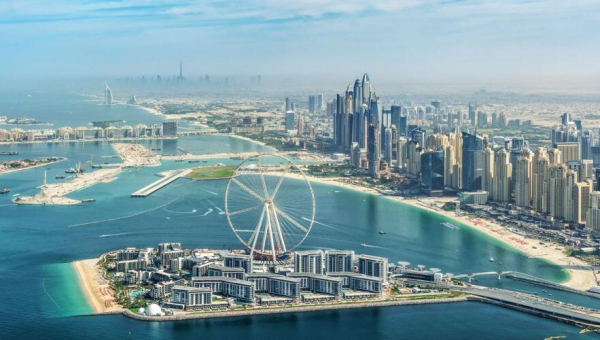
The city offers diverse options for residents, with new areas being developed, while financing and mortgage options becoming more varied
Dubai's real estate market will see a massive boost in property ownership and transparency in the wake of a new strategy launched by the government, said industry experts.
Under Real Estate Strategy 2033, Dubai aims to increase real estate transaction to Dh1 trillion by 2030 compared to Dh634 billion in 2023; boost the real estate sector's contribution to Dh73 billion; raise the homeownership rate to 33 per cent; implement programms for affordable housing; and focus on transparency and global marketing, among other things.
Industry executives say that the emirate will continue with its investor—and resident-friendly approach and devise new initiatives and policies that will encourage people to buy more properties and turn to ownership, bring more transparency to the market, and enable developers to launch more affordable developments.
Dubai's property market has experienced a remarkable surge in prices and rents in the post-pandemic period, fuelled by both local and foreign demand. Prices have surpassed the previous peak of 2014 across various areas of the city. However, the introduction of more affordable units as part of the Real Estate Strategy 2033 will open up opportunities for more people to own properties and help tenants transition to ownership.
Ownership boost
Prathyusha Gurrapu, head of research and consultancy at Cushman & Wakefield Core, said increasing property ownership accessibility would benefit end-users and foster long-term investments, enhancing market stability and economic growth. “Initiatives such as favourable financing options, reduced registration fees, and tailored mortgage products could play a crucial role in this effort,” she said.
According to Ari Kesisoglu, president, Property Finder, Dubai real estate market has seen a remarkable surge in property ownership over the past two years.
“Dubai's Real Estate Strategy 2033 aligns perfectly with our long-held belief that strategic investments and cross-industry collaboration can enhance trust, technology, transparency, and talent in the real estate sector. As a leader in proptech, we're excited to support this ambitious vision through our innovative solutions,” he said
Kesisoglu added they have observed a significant uptick in buy-to-live transactions, as evidenced by the substantial increase in mortgage processing through their Mortgage Finder advisory service. “This trend towards owner-occupancy is a natural and more sustainable boost to homeownership, contributing positively to the overall health of the real estate industry.”
Rohit Bachani, co-founder of Merlin Real Estate, is confident about the growth of property ownership in the city as evidenced by significant increases in transactions.
“We have recently sold a Dh53 million penthouse and have noticed a growing emphasis on trust, with buyers increasingly interested to know about the backgrounds of developers. This trend benefits both established real estate firms and emerging developers, as Dubai consistently offers diverse options for residents, especially with new areas being developed. Additionally, financing and mortgage options have become more varied, making the luxury market even more attractive,” said Bachani.
More affordable housing
Kesisoglu said Dubai's vast land availability presents a unique opportunity - a 'blank canvas' for real estate development.
“The government has already demonstrated its exceptional capability in urban planning, and we believe these assets and learnings can be leveraged to make affordable housing a reality. Combined with reliable data, AI-powered services, and the collective efforts of industry partners, we're confident that Dubai can build a more resilient real estate ecosystem. This will facilitate informed decision-making, reduce uncertainty, and continue to drive property ownership demand, while also creating a wider range of options in both pricing and lifestyles in the future,” said the president of Property Finder.
Prathyusha Gurrapu said Dubai has the Real Estate Strategy 2033 places a strong emphasis on affordable housing, and more options for affordable housing will be needed as the city expands in order to support the wider economy.
“While Dubai properties are relatively affordable compared to other global markets, a large section of the market continues to rent. That said, due to the rising rents, we are seeing a growing demand from tenants looking towards homeownership over the last few quarters and foresee this trend to continue, further supported by lowering of interest rates,” she added.
_thumbnail.jpeg)
Total number of homes planned or under construction now stands at 308,099 units
Dubai’s residential market continued to record strong growth in the second quarter of 2024, with property values rising by 21.3 per cent over the past year amid tightening supply as the ‘buy-to-stay’ trend grows, according to a global property consultant.
Average residential price increased by 21.3 per cent over the last 12 months with villas outperforming apartments.
Villa sale prices have grown by 24.3 per cent over the last 12 months, reaching Dh1,896 psf, putting them 28 per cent above the 2014 peak.
Knight Frank said in its Q2 Dubai Residential Market Review that this growth illustrates the enduring appeal of stand-alone, beachfront homes and branded residences that offer almost instant access to the Dubai lifestyle. Knight Frank’s 2024 Destination Dubai showed that access to greenery, wellness centres, and waterfront locations are the top factors attracting international buyers.
According to Knight Frank, Dubai’s luxury residential sector has also witnessed strong growth. The Palm Jumeirah, Jumeirah Bay Island, Jumeirah Islands, and Emirates Hills, collectively known as ‘Prime Dubai’, saw a 7.0 per cent increase in average transacted prices, which stood at Dh3,706 psf at the end of H1 2024.
With 853 homes sold, Palm Jumeirah once again accounted for the lion’s share of prime deals in H1 2024, at 89.3 Petri Mannila, partner – head of Prime Residential, UAE added.
It was followed by Jumeirah Islands (5.03 per cent) and Jumeirah Bay Island (3.56 per cent), and Emirates Hills (1.05 per cent).
Faisal Durrani, partner – head of Research, Mena, said the trajectory of home values in Dubai remains unchanged, highlighting the enduring demand from domestic and international buyers for homes in the city.
“The change in buyers’ preference — from purely investment-driven to those looking to purchase for personal reasons is eroding the number of listings in the city, which is also contributing to the sustained price rises which have continued for 21 quarters,’ said Durrani.
The number of residential listings in Q2 2024 fell by 22.8 per cent compared to the previous year, and for the first time since Q1 2022, the number of unique home listings in a single quarter has fallen below 100,000.
“The decrease in luxury home supply was even more pronounced, highlights Knight Frank. The number of homes available for sale in Dubai’s four prime residential communities of the Palm Jumeirah, Emirates Hills, Jumeirah Bay Island, and Jumeirah Islands has fallen by 47 per cent over the last 12 months to 2,851 properties,” Durrani said.
“The fall in the number of homes available for sale in the city reflects the increasing ‘buy-to-stay’ and ‘buy-to-hold’ mentality among purchasers. Buyers are increasingly purchasing these properties to use as their primary home or for use as a holiday home or second home. This significant shift in the mentality of buyers reflects the growing maturity of the market, which will further broaden its appeal to even more buyers and investors,” Petri Mannila, partner – head of Prime Residential, UAE added.
Knight Frank has updated its total pipeline of residential units scheduled for completion by 2029. The total number of homes planned or under construction now stands at 308,099 units. Of these, 82 per cent will be apartments, with the remainder being villas. This translates into an average of approximately 51,350 homes per year for the next six years, higher than the long-term completion rate of around 30,000 homes per year. The figure still falls short of the 73,000 homes per year Knight Frank estimates is needed for the next 16 years to accommodate Dubai’s vision of a population of 7.8 million by 2040, especially when factoring for the 30-40 per cent completion delays in any given year.
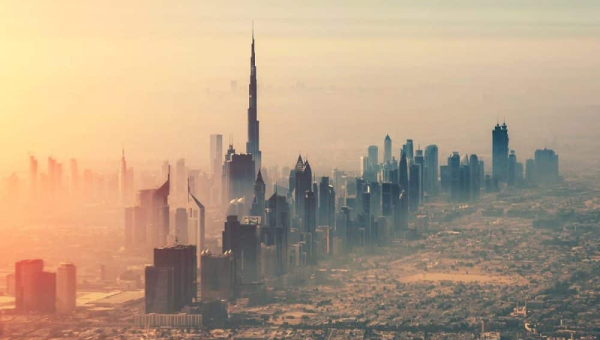
Abu Dhabi and Dubai real estate markets among most improved in the world in terms of transparency
Dubai and Abu Dhabi real estate markets are among the most improved in the world for transparency, according to a global sector survey.
The UAE cities secured places among the top five improvers in the transparency score globally, according to JLL's 2024 Global Real Estate Transparency Index (GRETI)
Dubai earned the third spot, and Abu Dhabi secured the fifth position for improvements made from 2022-24 and have been recognised among the top global improvers for:
- Scaling digital capabilities
- Implementing strong anti-money laundering (AML) and beneficial ownership (BO) regulations
- Increasing the availability of market data for established and start-up market providers
Abu Dhabi and Dubai real estate transparency
Dubai climbed one spot to reach the 28th position on the index in the 2024 edition, where it has retained its position as the only property market in the Middle East and North Africa (MENA) to feature in the “Transparent” tier.
The Emirate’s gains in its ranking highlight the effectiveness of government initiatives to enhance market transparency and foster a more robust real estate environment in the region.
The launch of technology-focused initiatives such as the Real Estate Innovation Incubator and Dubai PropTech Group have boosted Dubai’s rise on the index.
These initiatives have empowered the real estate community in Dubai, creating confidence in the sector and building a world-class investment environment.

Enhancements made to digital services through the Dubai REST interface, the smart real estate platform for real estate services, and providing access to land information or urban planning systems further underscore the Emirate’s commitment to continuous improvement in real estate practices.
Eng. Marwan Ahmed bin Ghalita, Director General of Dubai Land Department, said: “Dubai’s progress in the 2024 Global Real Estate Transparency Index demonstrates our commitment to building an innovative and reliable real estate ecosystem.
“Clear, open practices attract global investments, enhance market trust, and support sustainable development, aligning with Dubai’s vision as a leading global destination for real estate.
“Following Dubai’s Economic Agenda D33, we are advancing digital transformation and setting high standards to keep Dubai at the forefront of global real estate markets.”

Ranked 41st on the index, Abu Dhabi advanced four spots from 2022 in the “Semi-transparent” level.
The Emirate has leveraged PropTech and AI to expand its digital services and optimise real estate operations through its DARI platform, which includes sales and lease management and development and transaction databases.
James Allan, CEO of JLL Middle East and Africa (MEA), said: “Dubai’s continued advancement in the 2024 edition of the Global Real Estate Transparency Index and the significant improvements made by Abu Dhabi reflect a broader trend towards greater transparency and efficiency in real estate markets across the UAE. Our 13th Global Real Estate Transparency Index has also spotlighted the importance of embracing technology to drive the sector’s transformation and enhance transparency.
“The UAE has positioned itself as a tech and innovation leader in the MENA region, and by ramping up commitments to sustainability, it is creating a conducive investment environment that supports transformative urban development projects.”
In a constantly evolving real estate landscape, as countries in MENA transition to the next stage of urban growth, transparency is more important than ever in helping industry stakeholders make informed decisions and deliver better outcomes.
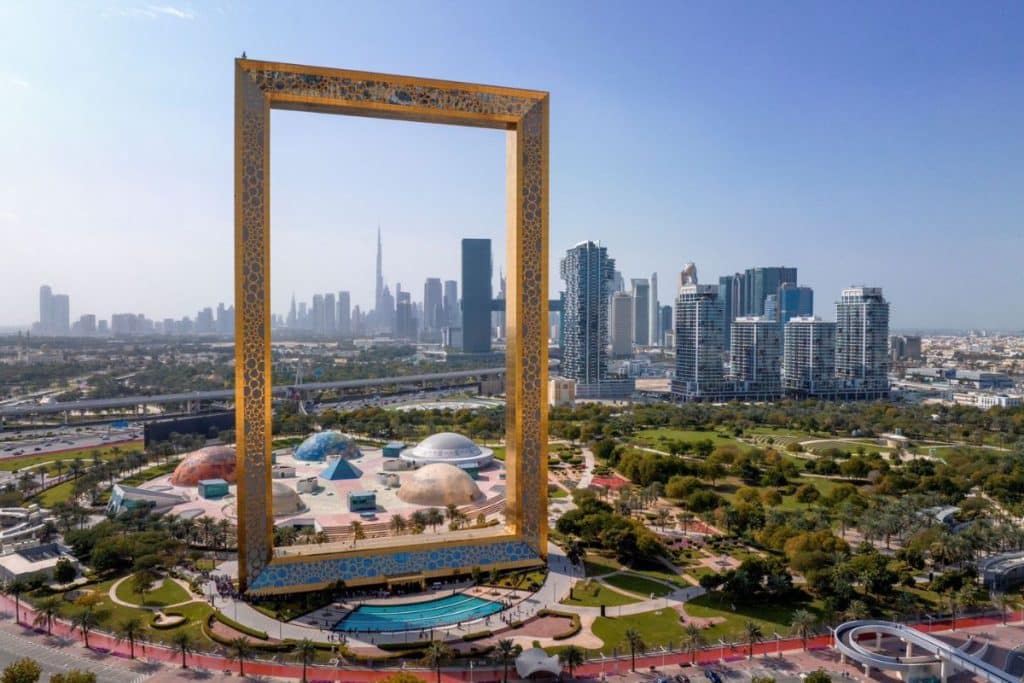
The most transparent markets are pulling ahead and positioned to lead into the next cycle, but major markets that have made progress and are focused on enabling higher levels of institutionalisation, such as the UAE and Saudi Arabia in MENA, offer strong long-term prospects.
JLL’s 2024 GRETI report reveals the significant competitive advantages AI brings to real estate markets and its potential for advancing productivity and transparency.
Despite its profound impact on the economy, concerns have been raised on the potential risks of AI tools inadvertently leading to price-fixing or other anti-competitive behaviour, for example, through pricing optimisation algorithms.
10 most transparent real estate markets in the world
- United Kingdom
- France
- United States
- Australia
- Canada
- Netherlands
- New Zealand
- Ireland
- Sweden
- Germany

Dubai real estate continues to attract global investors as in the month of August alone, witnessing 40% increase in sales value. The transaction volumes hit 36.9% tantamount to $12.9 billion.
Dubai real estate market has become new safe haven for smart investors with long term view, a senior official said. Kashif Ansari CEO and cofounder Juwai IQI cited the latest report from UBS which clearly demonstrates that demand for Dubai real estate market is growing at a phenomenal rate.
The UBS report holds significant value for those investors who want to take long term position in the city. Kashif stance on the dubai real estate market remains bullish and high potential for growth till 2030 and beyond.
The top areas for property investments are,
Dubai Marina
Jumeriah Village Circle
Downtown Dubai
Palm Jumeriah
Business Bay
Dubai Creek Harbour
Dubai Hills Estate
Arabian Ranches
In the month of August, Kashif shared his views business Bay area drew the single largest transaction amounting to Dh139 million, which reflects investors strong interest and above all the potential growth of the high end location.
Kashif said that global market uncertainty would draw investors to Dubai real estate market which will rise further in capital appreciation and rental yields. Dubai real estate market will become bigger than Singapore and Hong Kong before 2030. Kashif is optimistic on the Dubai market will have investors from Europe, UK, USA, India, Pakistan and China to take huge position for wealth preservation. Dubai real estate is the new global currency, he stressed.
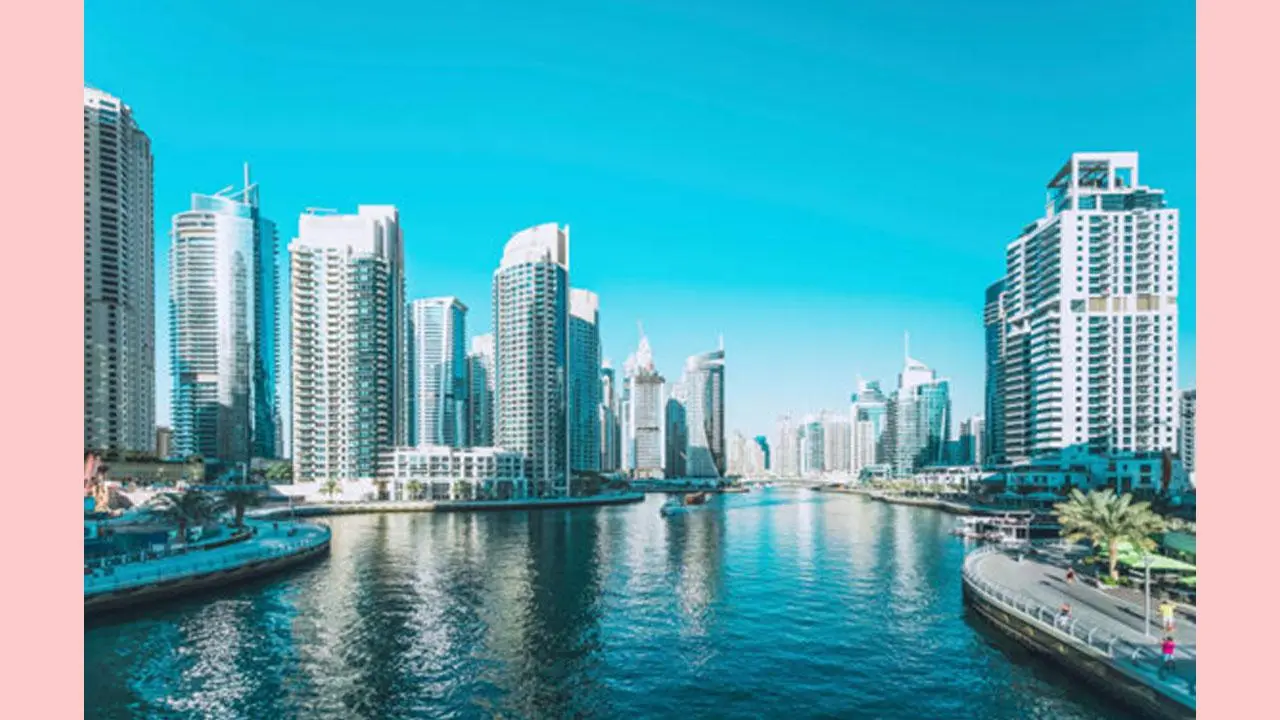
As Dubai looks ahead to 2025, the real estate will still remain a robust powerhouse of immense growth and opportunities
The city of Dubai has gained immense traction in recent years, transforming itself into a renowned destination for luxury lifestyle and the eye-catchy destinations. Each year, a wide array of homebuyers and investors from across the globe come to Dubai for profitable real estate investments and a lavish lifestyle that surpasses the ordinary. Dubai is a city where every corner showcases a life well-lived and all thanks to the ever-growing Dubai real estate.
Certain factors, which include the National and World Economic conditions and government policies and programs to attract foreign investment influence the real estate market of Dubai. Among all the factors that gave Dubai real Estate market an immense growth, the most important ones are the city’s state-of-the-art infrastructure, a stable economy, and a luxurious lifestyle that surpasses the ordinary.
As Dubai will march into 2025, the real estate will still remain a robust powerhouse of immense growth and opportunities like never before. The city’s expansion and rise in the off-plan projects in Dubai are perfectly crafting an environment where property prices and rentals are expected to hit the market. This blog will help you understand the current scenario of Dubai real estate market, latest trends and forecasts, and analyze the key elements that will help you make a smart move.
Dubai Real Estate Market–Current Scenario
Dubai Real Estate market has experienced an unprecedented growth in the recent years, accompanied by an increasing global demand for ultra-luxury real estate especially after the Covid-19 hit the space.
According to the latest data by the Dubai Land Department (DLD), a whopping number of 32,109 transactions got registered in the period of April to June, 2024, reflecting a noticeable increase of 32% as compared to the same period in the past year. The total value of sales reached AED 63 Billion, marking a robust growth of 23%.
Not only this, the real estate market of Dubai has also shown immense progress in the period of January to March 2024, reflecting a growth of 17%. This almost double growth from 17% to 32% indicates a remarkable upward trajectory in the market.
A significant introduction of new off-plan properties is expected in the coming years, raising increased demand that could impact the prices of Dubai properties.
Key Indicators of the present state of Dubai Real Estate market includes:
- A Surge in Demand
There has been a surge in demand for Dubai properties, particularly luxury apartments and villas in the most sought-after communities such as Al Karama, Mohammad Bin Zayed City, Al Jaddaf, Dubai Maritime City, EMAAR Beachfront, Sobha Hartland 2, Dubai Hills Estate, and others. This increased interest of the buyers in Dubai real estate is driven by certain factors which include, tax-free government policies, safe environment, and the city’s commitment to constant innovation and developing infrastructure marvels.
- Accelerating Prices
Rental rates and sales prices of Dubai properties have seen a rising trend. On the basis of some reports, an increase of 26% for rents has been observed in 2023 as compared to the previous year. - Investor Perception
Investor’s perception and confidence in the real estate of Dubai remains high impelled by various factors such as the business and tax-friendly environment, city’s prime location and luxurious lifestyle, accelerating rental rates and sales prices, and last but not least, a secure legal framework and robust economic growth and stability.
Emerging Trends and Forecasts
As you are navigating through 2024, Dubai’s real estate market continues to rise in an upward direction, reflecting strong demand for both residential and commercial properties. State-of-the-art-infrastructure, cutting-edge technology, favourable visa and tax policies, and a smooth business environment are some of the key factors that continue to grab the attention of the investors from all across the globe.
Several key trends shaping the Dubai real estate market forecast for 2025 are:
Investors increased focus on attractive rental yields
The real estate of Dubai is a shining light for investors, with rental yields that are grabbing the attention of the investors.
So, what is making Dubai a magnet for investors. Below are some of the key ingredients:
- Prime hotspots such as Downtown Dubai, with Burj Khalifa, Dubai Fountain, and Dubai Mall is what makes Dubai a magnet for tourists. This constant influx of visitors results in higher rental yield for investors.
- Close proximity to the major roads and Dubai Metro, makes an area more suitable for tenants. Prime locations such as Dubai Marina, with its seamless connectivity capture the attention of investors.
- Imagine a property with an infinity pool, a spacious gym, a landscaped garden! These luxury amenities in the prime areas of Dubai such as Palm Jumeirah demand premium rents, thereby increase the rental yields for investors.
With high rental yields, investors may divert their focus from mere capital appreciation to buying properties that demand high rental yields.
1. A frequent rise in Off-Plan properties in Dubai
Off-plan properties in Dubai are the ones where investors invest in properties that are under construction. These properties are gaining immense importance due to its affordability and potential for a higher return on investment upon completion.
2. Tech Innovations
The advancement of technology in the real estate sector such as Virtual property tours, smart homes, property management Dubai services is further expected to improve the end-user experience and streamline the real estate transactions.
3. Focus on Sustainability
Dubai’s focus on Sustainable living with green technologies and 0 energy homes is raising the demand for eco-friendly properties with energy-efficient and sustainable features. Soon, the city of Dubai will become the world’s first city with the smallest carbon footprint.
The above trends and future forecasts clubbed with Dubai’s economic diversification and state-of-the-art infrastructure development plans, paves a smooth way towards a promising future for the investors who are interested in making an investment in Dubai.
To Wrap Up
Dubai’s real estate market represents a treasure of opportunities, from high rental yield urban havens to ultra-rich areas providing luxury and high capital appreciation. The current Dubai property market trends and the forecasts from the future denotes that the Dubai’s real estate showcases an upward trajectory with limitless opportunities for both developers and investors.
With a stable economy, ever-evolving growth, investor-friendly policies, new initiatives for green and sustainable living, goal of becoming the next solar haven, and a lot of off-plan projects with a higher ROI, more and more investors from every corner of the globe are showing their interest and becoming confident in investing in Dubai properties, thereby painting a promising future of Dubai real estate market forecast for 2025 and after that!
Frequently Asked Questions
1. Will the price of Dubai properties continue to rise in 2025?
According to the experts, it has been expected that the price of Dubai properties will continue to rise in 2025 and the coming years. There are various factors such as a progressive economy, upcoming expo 2025, increased demand, government initiatives to attract foreign investors that will drive the prices of Dubai properties.
2. Is it worth investing in Dubai properties?
Yes, investing in Dubai properties can be a favourable opportunity for the people who are seeking a luxurious lifestyle and high capital appreciation and lucrative returns.
3. Where do the richest people in Dubai live?
Some of the richest neighbourhoods in Dubai are Emirates Hills, Jumeirah Golf Estate, Jumeirah Beach Residence, Dubai Marina, Palm Jumeirah, Downtown Dubai, etc.
4. Where do most Indians live in Dubai?
Indians mostly live in areas such as Bur Dubai, Dubai Sports City, Jumeirah Village Circle, and Al Furjan as these communities provide them with affordable flats and apartments for buying or renting purpose.
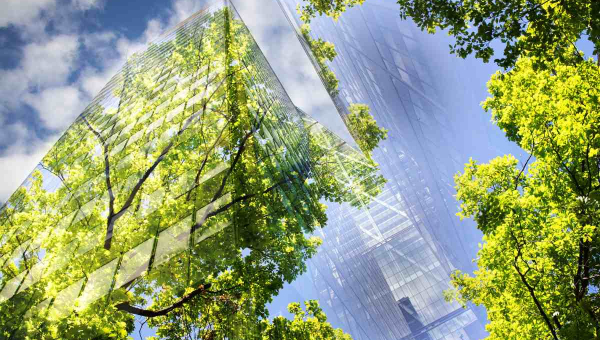

Recent extreme weather events around the world have acted as a timely reminder of the importance of sustainability in the real estate sector. Investment in ‘bricks-and-mortar’ is not only about providing financial stability. It is also about ensuring people and assets are protected from an increasingly hostile climate.
That is why sustainability remains one of the key priorities both for companies looking to rent commercial property, and for investors looking for solid returns in real estate. Even in the Dubai commercial property market, where vacancy rates in the single digits are causing fierce competition for space, companies are unwilling to compromise on core sustainability principles.
From LEED-certified office buildings to energy-efficient commercial spaces, developers in the UAE are increasingly focusing on green building practices and sustainable design. This not only aligns with global sustainability goals but also reflects the wider commitment to responsible urban development.
Raising the bar
The UAE set new standards for international cooperation by hosting COP28 in 2023, which resulted in the historic ‘UAE Consensus’ on climate neutrality. The Dubai Clean energy strategy aims to produce 75 per cent of its energy requirements from clean sources by 2050, which is spurring the implementation of green construction standards designed to minimize environmental impact and maximize efficiency.
Of course, there are long-term financial benefits from investment in green building technology. According to data from the Dubai Electricity and Water Authority (DEWA), green buildings in Dubai can achieve up to 20 percent savings in electricity and water consumption compared to conventional buildings, translating into significantly lower operating costs.
The green premium
The push for higher sustainability standards has been led by the properties in the premium sector. Index Tower, which is mostly owned by Emirates REIT, was one of the first towers in the region to incorporate its surrounding environment into its fundamental design principles. As one example, the architect reduced the amount of glass in the façade to a minimum without compromising the amount of light inside. As a result, the tower’s environmental strategy significantly lowers the requirement for air conditioning within the building and substantially reduces energy costs.
The rise in demand for mixed-use developments is also driving awareness of the need to integrate sustainability into design. As urbanization continues, there will be growing demand for spaces that offer a combination of residential, commercial and recreational amenities in vibrant mixed-use communities. Access to green spaces and cooled areas will become ever more important in these developments, along with a focus on environmentally friendly energy use.
As Dubai continues to evolve and adapt to changing global trends, it will remain at the forefront of innovation and development in the commercial real estate sector. Sustainability, mixed-use developments, technology and strategic positioning will all help steer the direction of the sector in support of climate-neutral goals. By embracing these trends and leveraging its unique strengths, the city is poised to maintain its status as a premier destination for commercial investment and growth in the years to come.
1_thumbnail.jpeg)
Property prices in the emirate have seen a double-digit increase over the past three and a half years
Dubai has been ranked among the few cities in the world with accelerating property market growth.
The emirate is ranked along with Bangkok, Berlin, Stockholm, Hong Kong, Jakarta, Paris and Warsaw where the growth of the property market is accelerating, according to global real estate consultancy JLL’s Global Real Estate Perspective.
The emirate’s real estate has been consistently outperforming its global peers in terms of capital appreciation and rental returns over the past three and a half years, driven by the huge interest from foreign investors and residents in the post-pandemic period.
Importantly, the rally is also driven by the fact that Dubai’s real estate market is still much more affordable than major cities such as New York, Hong Kong, London and Paris.
Though affordability and higher returns have attracted foreign investors, high-net-worth individuals have moved to Dubai to enjoy the world-class quality of life and safety and security this city offers to residents.
Property prices in Dubai have seen a double-digit increase over the past three and a half years, which is much higher than the other major cities across Europe, the US, the Middle East and Asia.
According to Knight Frank’s 2024 Wealth Report, Dubai was the second highest performer in 2023 with a 15.9 per cent increase in luxury property prices, becoming the second fastest growing after Manila.
“The Dubai real estate market has seen continuous growth with record sales across all sectors. Notably, the end-user market which increased from 2020 due to the stability of the Emirate, has seen villa and townhouse prices increase due to low supply.
"Luxury properties in Dubai continue to attract high-net-worth individuals and investors looking for premium real estate opportunities. The city's iconic landmarks, upscale amenities, and luxurious lifestyle offerings contribute to its appeal as a prime real estate destination,” said Provident Estate.
The JLL’s study noted that property market growth is slowing in Brussels, Sydney, London, Amsterdam, Madrid, Milan and Kuala Lumpur. In terms of rentals, Beijing, Boston, Chicago and Washington DC are seeing a decline while rents in New York, Singapore, Manila, Shanghai, San Francisco and some other cities are botting out.
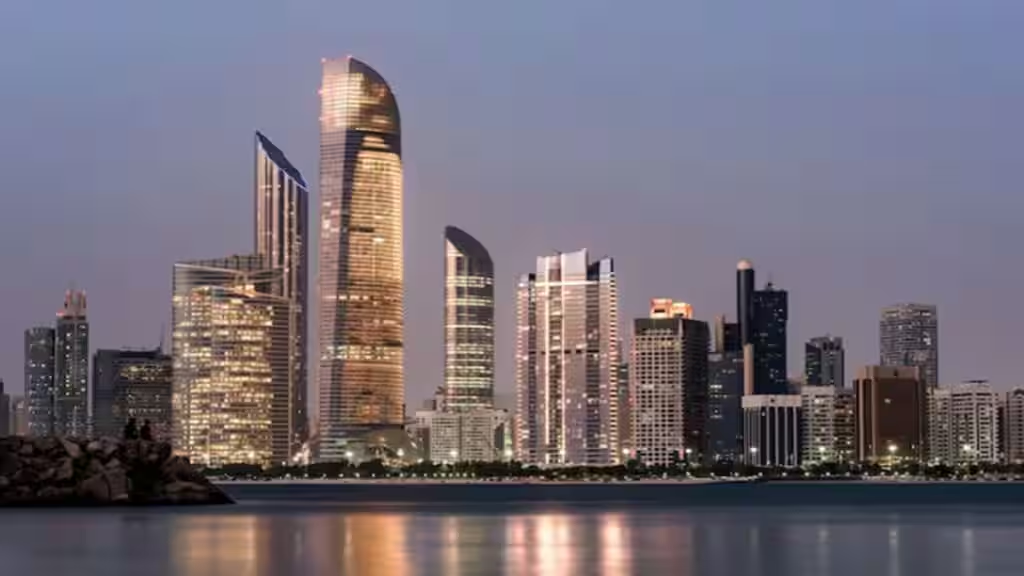
A notable trend in Dubai's real estate market is the surge in transactions for properties priced between AED 1–2 million, now comprising 33% of total transactions, up from 27% last year.
Dubai’s residential market is on a remarkable upward trajectory, fuelled by the global surge in demand for luxury real estate post-pandemic. According to the latest data from Square Yards, the Dubai Land Department registered a staggering 32,109 transactions in the April-June 2024 period, marking a 32% increase compared to the same period last year. The total sales value reached AED 63 billion, reflecting a robust 23% growth year-on-year.
The growth is not just annual; the market has shown impressive sequential gains from January-March 2024, with the number of transactions and sales value rising by 17% each. This double-digit growth indicates a sustained upward momentum in the market.
A notable trend in Dubai’s real estate market is the surge in transactions for properties priced between AED 1–2 million, now comprising 33% of total transactions, up from 27% last year. This shift highlights the growing demand for mid-range properties. Additionally, properties within the 500–1,000 sq.ft. range continue to dominate, representing 41% of all transactions. This indicates a strong preference for compact yet premium living spaces among buyers.
Commenting on this, Rabiah Shaikh, Chief Business Officer & Principal Partner – Global Markets, Square Yards, said, “Dubai’s property markets continue to thrive despite global uncertainties and the unfortunate floods in April. The swift government intervention and developers’ efforts to provide free repairs for affected properties have reinforced market resilience and stability. Our data shows that both registered transactions and sales values are growing steadily in healthy double digits as Dubai maintains a stronghold as a premier global luxury destination. Ultra-High-Net-Worth Individuals (UHNIs) and High-Net-Worth Individuals (HNWIs) continue to invest in luxury projects for both investment and personal use in popular central areas. The surge in demand combined with limited availability in these prime locations has significantly pushed up property prices.”
Shaikh further added, “Beyond the ultra-wealthy, initiatives like the extension Golden Visa are drawing many professionals to Dubai. The steady increase in relatively affordable projects across peripheral micro-markets provides a variety of options for these individuals, offering a more cost-effective alternative to the significantly more expensive central areas.”
Micro Market Performance
Jumeirah and Dubailand led the way in residential activity, together accounting for 43% of total registered home transactions in the June quarter. In terms of sales value, Dubailand and The Palm Jumeirah dominated with a combined 32% share, followed by Jumeirah and Sheikh Zayed Road, each holding a 13% share. In case of average registered home sales values, Dubai Islands (Deira Island) and The Palm Jumeirah are at the forefront, with AED 4.78 million and AED 4.38 million, respectively.

Locality-level insights reveal that Jumeirah Village Circle (JVC) leads the market with 3,637 registered transactions, followed by Al Merkadh with 2,432 transactions. In terms of sales value, Business Bay takes the top spot with AED 4,475 million worth of homes sold during the quarter. Za’abeel and Dubai Marina also made substantial contributions to the overall sales value.
Market Leaders and Key Projects
Emaar Properties and Sobha Realty continued their market dominance in both transaction numbers and sales value for the April-June 2024 quarter. Sobha One in Ras Al Khor Industrial Area emerged as the top project in terms of transactions and sales value, closely followed by Emaar’s Address Residences on Sheikh Zayed Road.
The June 2024 quarter highlights the resilience of Dubai’s property market, which has adeptly navigated recent floods and broader global economic uncertainties. The luxury sector remains a stronghold of robust demand, showing no signs of slowing down. Amidst a backdrop of limited supply, the market for high-end properties is poised for sustained demand and price growth. Additionally, the increase in new projects in mid-segment price points across peripheral micro-markets presents attractive options for end-users and working professionals relocating to Dubai.

Market shows significant upturn with 59% rise in transactions and 57% rise in value
Over 17,000 real estate transactions worth Dh55.5 billion were recorded in Dubai last month, making for a record breaking July 2024, data showed on Monday.
According to Property Finder data, the market maintained an upward trend, seeing a 59 per cent increase in transactions and 57 per cent increase in value, when compared to July 2023.
July was a pivotal month for the industry, as transaction values came to par with the highest peak recorded earlier this year, in May. Ten areas represented 51 per cent of the total transactions including Al Barsha South Fourth, Business Bay, Marsa Dubai, Jebel Ali First, Wadi Al Safa and Al Thayah Fifth.
In July 2024, the existing market recorded the highest volume and value of transactions ever, touching 8,400 transactions, compared to 6,606 transactions in May 2024, indicating an increase of 27 per cent.
In terms of value, the ready market recorded transactions worth Dh36 billion, crossing the highest peak recorded in June 2024 by 23 per cent.
The off-plan market witnessed a YoY increase of approximately 77 per cent in volume, with around 9,300 transactions.
ifty nine per cent of property seekers with an interest in ownership were looking for an apartment, while 41 per cent were searching for villas/townhouses. 33.6 per cent investors were searching for one bedroom units, with 35.2 per cent showing an inclination for two bedroom apartments and 13.7 per cent for studios.
Seekers for villas/townhouses included 39.8 per cent searching for three bedroom units and 44.9 per cent for four bedroom or larger options.
Popular areas for ownership were Dubai Marina, Jumeirah Village Circle, Downtown Dubai, Business Bay, and Palm Jumeirah. Dubai Hills Estate, Al Furjan, Palm Jumeirah, Akoya by Damac, were the most desired areas to own villas/townhouses.
Rental Trends
Eighty per cent of tenants were seeking an apartment, with the remaining 20 per cent considering villas/townhouses.
Roughly 60 per cent of tenants looking for apartments preferred furnished properties, while 38 per cent turned to unfurnished options.
Tenants who sought villas/townhouses showed a difference in preference, with around 57 per cent searching for unfurnished units and 42 per cent going for furnished properties.
When searching for apartments, 37 per cent of tenants were looking for one bedroom units, while 31.7 per cent expressed a preference for two bedroom apartments and 20.9 per cent for studios.
Tenants keen to select villas/townhouses showed signs of a fairly equal distribution with 43.1 per cent looking for three bedroom units and 35.4 per cent searching for four bedroom or larger options.
Top areas searched to rent apartments included Dubai Marina, Jumeirah Village Circle, Downtown Dubai, Business Bay and Deira.
Jumeirah, Al Barsha, Dubai Hills Estate, Akoya Damac Hills, and Umm Suqeim were popular among those looking to rent villas/townhouses.
Cherif Sleiman, chief revenue officer at Property Finder, said: “With the UAE striding towards its vision ‘We the Emirates 2031’, we are at an exciting time in the nation’s development journey across social, economic and investment sectors, and in turn - the real estate market. Recognising this, more people are in search of long-term homes in Dubai - evidenced by the upward trend in volume and value of transactions, while regulatory reports from Sharjah further indicate promising investment interest. Both existing and off-plan projects seem to be thriving, lending to a constant diversification of property demand, backed by growing returns on investment. Newer developments outside central city locations are also seeing growing consideration, partly due to developer efforts to sustain momentum with steady supply, while nurturing communities that appeal to a global audience. At Property Finder, we consistently innovate to support this demand and are committed to transforming the search process, powered by trust, transparency, talent and technology.”
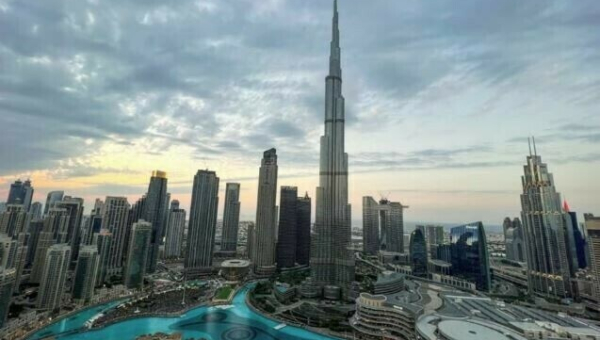
Dubai led a list of 30 markets that had the strongest rental growth during the first half of 2024, underscoring the emirate’s robust property and real estate market that has already defied expectations of a slowdown.
In the Savills Prime Residential World Cities index published on Monday, the real estate firm said Dubai was ahead with a phenomenal 12.1% rental growth, more than three percentage points ahead of Bangkok (9%) that was a new entrant to the list. Lisbon showed 7.5% growth and was placed third in the list.
Savills Plc added that average gross prime yield across the 30 markets currently stands at 3.2% across the cities, up from 3.1% in December. Overall, Los Angeles, New York, and Dubai remain the highest yielding cities with average yields above 5%.
Dubai and Lisbon have been perennial leaders for growth in their prime rental markets because of excess demand for high quality rental properties but Bangkok is a new entrant,” Kelcie Sellers, associate director, Savills World Research, was quoted as saying.
“Rental demand for prime rental property in the city has risen due to the higher interest rate environment and the return of tourism and expats after the pandemic.”
The report added that across many EMEA markets, demand continues to outstrip supply of prime rental properties which is supporting prime rental price growth across the region.
Interestingly, no EMEA market tracked in the index saw rental prices fall from December 2023 to June 2024.
Dubai’s outlook
Dubai has seen massive real estate growth and deals worth $74.6 billion were executed in 2023, according to property consultant Knight Frank LLP.
Many saw this as the peak of property demand, serving reminders of the 2008 slowdown before the first three months of 2024 saw another $24 billion worth of property changing hands.
Despite the rental growth, Dubai’s residential properties were deemed relatively affordable compared to other cities in the region, according to the ‘Global Wealth & Lifestyle Report 2024’ published by Swiss wealth management firm Julius Baer Group LTD in June.
2023:Pakistanis remain among top 10 buyers of Dubai property , Indians top list
On the global front
Meanwhile, Athens, Barcelona, Amsterdam, Berlin, and Cape Town have all seen prime rental prices rise by more than 3% over the first half of 2024, with Athens seeing rental prices increase by 4.6% during the six-month period, added Savills.
With the residential sales market in the United States moving slowly because of higher interest rates, many prospective buyers have turned their attention towards prime rental markets in key cities across the country.
Los Angeles and San Francisco have each seen prime rental price growth of over 4% for the first half of the year. New York City is also seeing rising rents, with increases of 3.6%.
Chinese markets saw mixed performance in the past six months.
Rents in Beijing were up 1.6% in the first half of the year as economic uncertainty and the changing attitudes towards renting versus buying led to an increasing number of individuals choosing to lease residential properties. Shanghai saw modest declines in its rental pricing of -0.2%, while Guangzhou, Shenzhen, and Hangzhou saw rental price falls between -0.9% and -1.2% as the wider economic slowdown affects sentiment around the residential markets.
The report also suggested that rents are expected to continue to outperform capital values for the remainder of 2024 and in the medium-term as supply continues to remain scarce in many world cities.
“High interest rates continue to contribute to caution in the sales markets and are pushing more would-be buyers into the prime rental markets. However, the potential for interest rate cuts in the second half of the year may encourage those would-be buyers to re-enter the sales market, easing price pressures,” Sellers was further quoted as saying.
“However, supply is expected to remain tight in many world cities due to several factors, such as high construction costs and development challenges, which may mean further upward pressure on prime rental prices.”
Copyright Business Recorder, 2024



